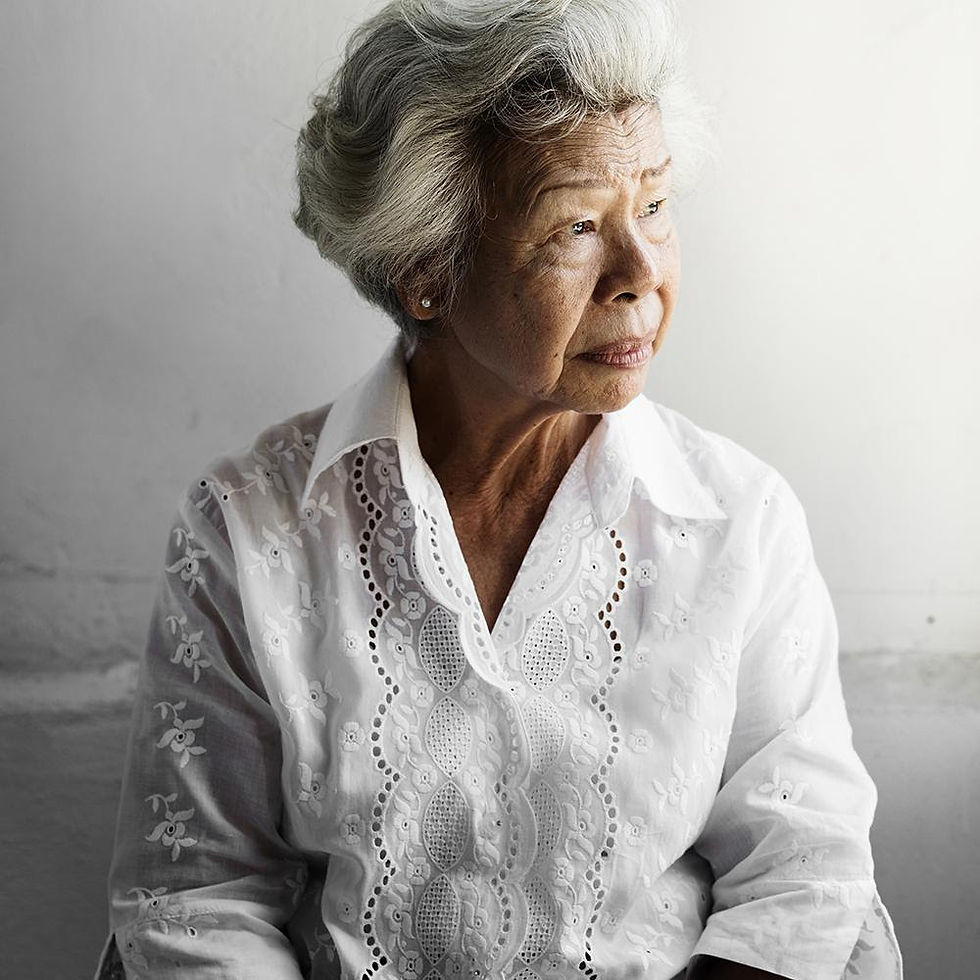Dementia Series, Ch. 1 | What is Dementia?
- Laura Cassell

- Jul 26, 2020
- 3 min read
Updated: Aug 19, 2020
Do you know the difference between Dementia and Alzheimer's?
It's so important to have your loved one medically evaluated to know how to best care for them through the progression of their dementia symptoms and needs. This is not a time to shutdown or panic if they have symptoms of dementia. It's a time to learn how you can help them with these uncontrollable brain changes. Right now, there's no cure or vaccine for Dementia, and most people live with dementia from early on-set to end-stage, anywhere from 6-12 years. Please treasure the time you have to the fullest and don't forget to take care of you in the process of helping them!
Most of the time, when discussing Dementia, the second word/thought that comes to everyone's mind is... Alzheimer's. Often this is the response from families after I ask if mom has been medically evaluated yet? The most common answer I receive is,"Well I'm not really sure if my mom was ever evaluated or screened for Alzheimer's, but I had a friend who said her mom was acting the same as mine and her mom had Alzheimer's." Why is that the common answer? I believe it's because the two are mistakenly thought to be the same thing and affect everyone the same way. Mayo Clinic defines Dementia as, "a group of symptoms affecting memory, thinking and social abilities severely enough to interfere with your daily life."
What is Dementia? Do you know? I've learned (constantly learning more everyday) through dementia trainings and professional experiences. Dementia affects everyone differently. Dementia is not considered a "diagnosis." A better way to describe Dementia is by explaining it as a collection of symptoms or a syndrome caused by changes and dying to parts of the brain, leading to neurodegenerative illness.
Think of dementia as several different chronic issues in a person causing the dementia. The most common and well-known symptom of dementia is memory loss. However, just because you are aging and having memory troubles doesn't automatically mean you have dementia symptoms. Let's think about Dementia as an umbrella term.

The beach umbrella image, was created to illustrate the "umbrella" term of Dementia. To doctors, Dementia is used to describe conditions resulting in disruption of the brain's memory and thinking functions. It's a broad term that covers different brain conditions that have in common a decline in one's mental abilities. Alzheimer's is listed under the umbrella meaning it's a form of dementia just like Vascular, Lewy bodies, Parkinson's and Semantic Dementia to name a few.
According to a recent article published by Dementia Under Stand Together, over a 100 different types of dementia have been discovered.
The most common type of dementia is Alzheimer's (brain disease). Currently, about 60% of dementia are diagnosis' are Alzheimer's disease. The second most common type of dementia is Vascular Dementia (lack of blood supply to brain). Some hallmark signs of vascular dementia is uncontrollable emotions or extreme apathy.
These are four things that we DO KNOW about being under the "umbrella of dementia:"
1. At least two parts of the brain are dying and changing.
2. All dementia's are chronic.
3. All dementia's are progressive and untreatable.
4. All dementia's are terminal.
Unfortunately, some individuals are diagnosed with inaccurately because of ineffective memory screening evaluations. Because of this, people are diagnosed to have "dementia" and don't actually have it, but exhibit similar symptoms. Pseudodementia examples are: delirium, thyroid issues, medication interactions, brain tumor, and/or chronic health changes.
Each chapter in the "Dementia Series," will cover different topics revolving around research for people to understand the facts and myths about dementia. In the next chapter, I will be exploring into memory evaluation/screenings needed to accurately treat and understand different forms of dementia. More chapters on this blog series will focus on differences in dementias, different real-life caregiver experiences, behaviors to expect, dementia vs. alzheimer's and more!

Laura Cassell, CDP
Care Manager and Dementia Practitioner
Pearl Care Solutions & Senior Care Authority-Gulf Coast
laurav@seniorcareauthority.com
References:
1. Alzheimer's Disease International
World Alzheimer's report 2019: attitudes to dementia.
https://www.alz.co.uk/research/WorldAlzheimerReport2019.pdf Date: September, 2019 Date accessed: March 15, 2020
2. World Health Organization Dementia Factsheet. (2019). Available online at: https://www.who.int/news-room/fact-sheets/detail/dementia (accessed March 4, 2019).




Comments